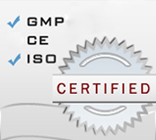
ELISA Kits
- • Anemia ELISA kits
- • Allergy ELISA kits
- • Autoimmune Disease kits
- • Bone Metabolism ELISA kits
- • Blood bank ELISA kits
- • Cancer ELISA kits
- • Cardiac Markers ELISA kits
- • Diabetes Assays ELISA kits
- • Drug test ELISA kits
- • Fertility ELISA kits
- • Food ELISA kits
- • Infectious Disease ELISA kits
- • Other ELISA Kits
- • Parasitology ELISA kits
- • Steroid ELISA kits
- • Thyroid ELISA kits
Rapid Tests
- • Allergy Rapid tests
- • Bone Metabolism
- • Cancer Rapid tests
- • Cardiac markers Rapid tests
- • Drug Tests
- • Fertility Rapid tests
- • Hepatitis Panel
- • Infectious Disease & other tests
- • Other
- • Ovulation Rapid tests
- • Pregnancy tests
- • Urine Reagent Strips tests
IFA Kits
Chemiluminescence Immuno Assays
- • Allergy Assays
- • Autoimmune Thyroid Assays
- • Cardio-Vascular Monitoring
- • Diabetes Assays
- • Fertility Assays
- • Growth Deficiency
- • Infectious Disease Assays
- • Others
- • Steroid Assays
- • Thyroid Assays
- • Tumor Marker Assays
Serology Tests
- • ASO (Anti-Streptolysin-O)
- • CRP (C-Reactive Protein)
- • Mono (Infectious Mononucleosis)
- • RF (Rheumatoid Factor)
- • RPR (Rapid Plasma Reagin)
- • SLE (Systemic Lupus Erythematosus)
Instrumentation



H. pylori IgG CLIA kits - (Chemiluminescence Immuno Assay)
| Name |
H. pylori IgG CLIA kits - (Chemiluminescence Immuno Assay) |
|---|---|
| Category Name | Infectious Disease Assays |
| Test | 96 |
 |
 |
 |
H. pylori IgG CLIA kits - (Chemiluminescence Immuno Assay) description:
Helicobacter pylori IgG Chemiluminescence ELISA is intended for use in evaluating the serologic status to
H. pylori infection in patients with gastrointestinal symptoms.
Helicobacter pylori is a spiral bacterium cultured from human gastric mucosa by Marshall in 1982. Studies have indicated that the presence of H. pylori is associated with a variety of gastrointestinal diseases including gastritis, duodenal and gastric ulcer, non-ulcer dyspepsia, gastric adenocarcinoma and
lymphoma. The organism is present in 95-98% of patients with duodenal ulcer and 60-90% of patients with gastric ulcers. The studies have also demonstrated that removal of the organism by antimicrobial therapy is correlated with the resolution of symptoms and cure of diseases. Patients who present with clinical symptoms relating to the gastrointestinal tract can be diagnosed for H. pylori infection by two methods; (1)invasive techniques include biopsy followed by culture or histologic examination of biopsy specimen or direct detection of urease activity.(2)non-invasive techniques include urea breath tests and serological methods. All of the testing performed on biopsy samples are subject to errors related to sampling and interference of contaminated bacteria. H. pylori IgG, testing the presence of H. pylori specific IgG antibody is the technique of choice for serologic tests because of its accuracy and simplicity.
Purified H. pylori antigen is coated on the surface of microwells. Diluted patient serum is added to wells,
and the H. pylori IgG specific antibody, if present, binds to the antigen. All unbound materials are washed away. After adding enzyme conjugate, it binds to the antibody-antigen complex. Excess enzyme
conjugate is washed off and substrate A & substrate B mixture is added. The light generated (RLU) is
proportional to the amount of IgG specific antibody in the sample. The results are read by a microwell
luminometer compared in a parallel manner with calibrator and controls.
Home > Chemiluminescence Immuno Assays > Infectious Disease Assays > H. pylori IgG CLIA kits - (Chemiluminescence Immuno Assay)
ELISA kits - Rapid tests- Drug tests- Pregnancy test - IFA kits - CLIA assays - Serology tests - Instrumentation
©1992 Diagnostic Automation/Cortez Diagnostics Inc. All rights reserved.








